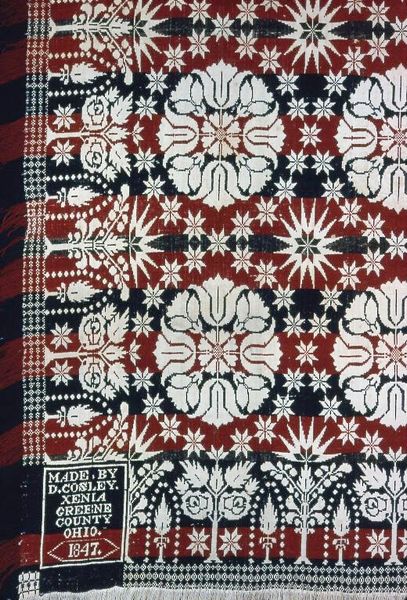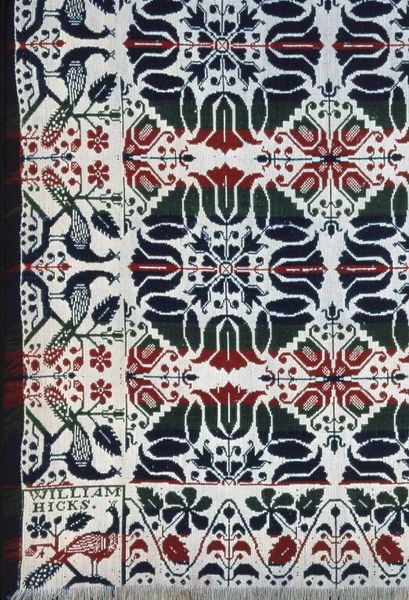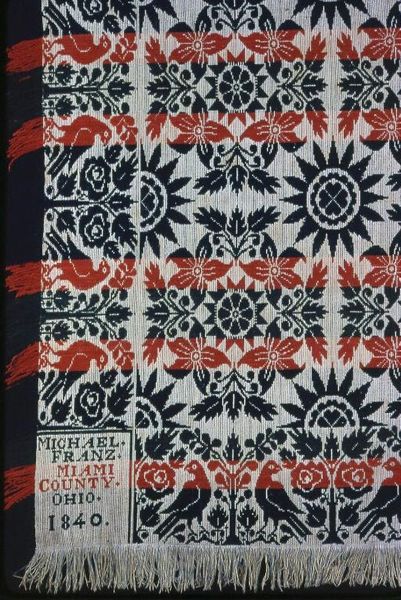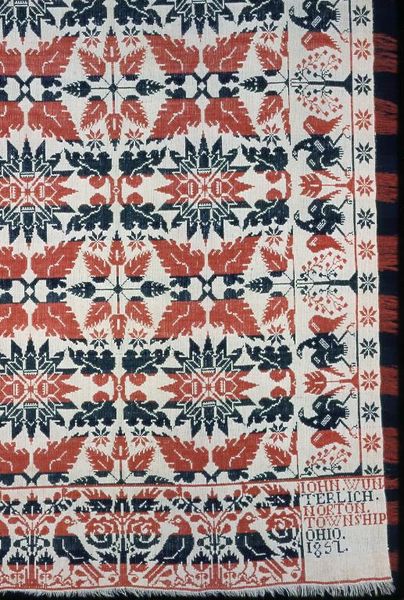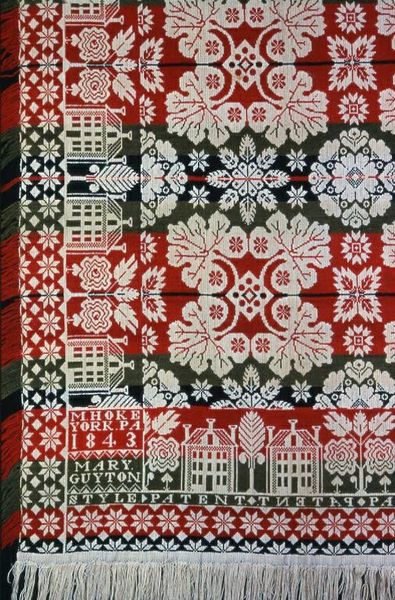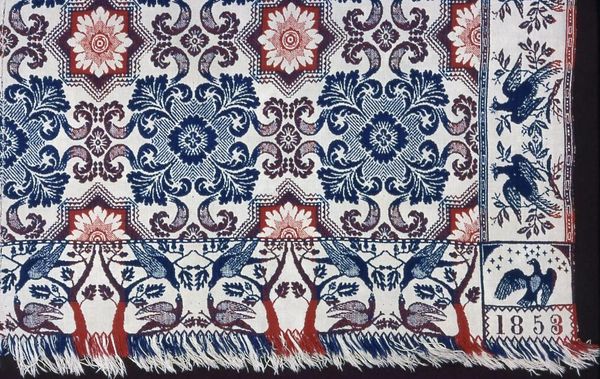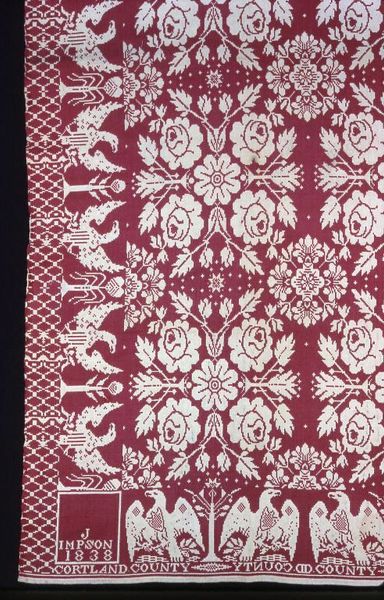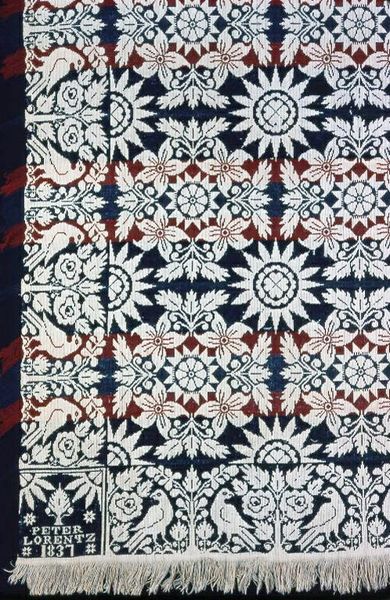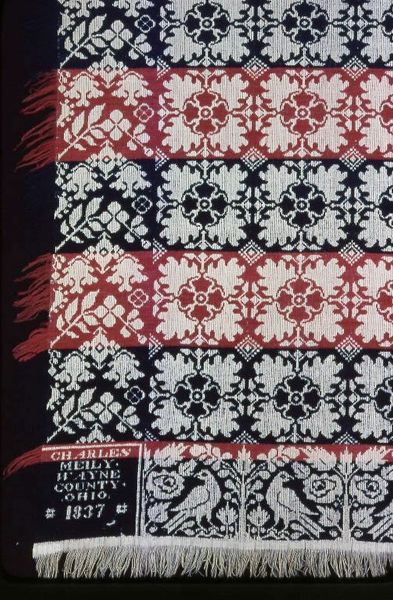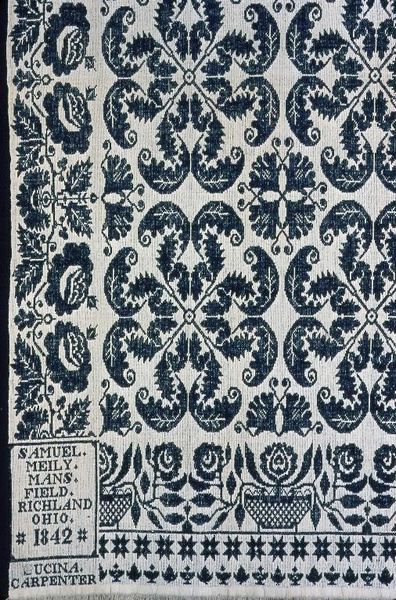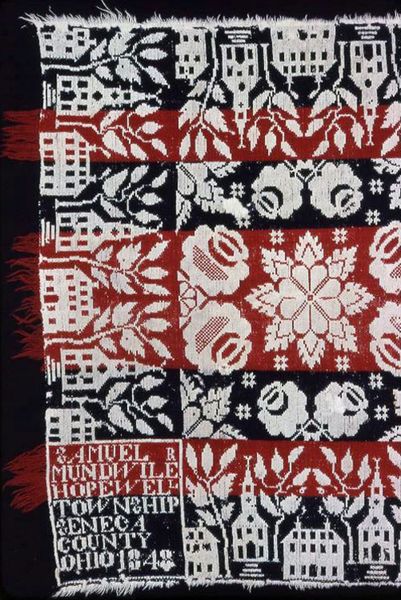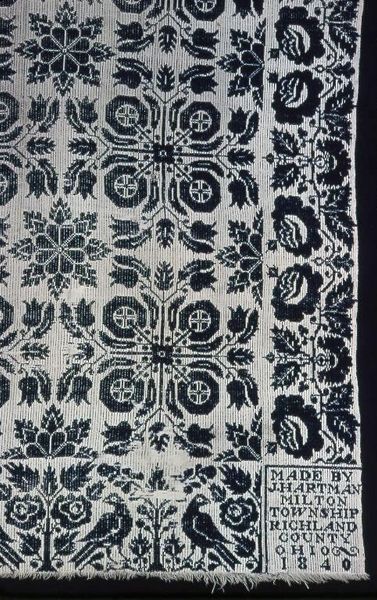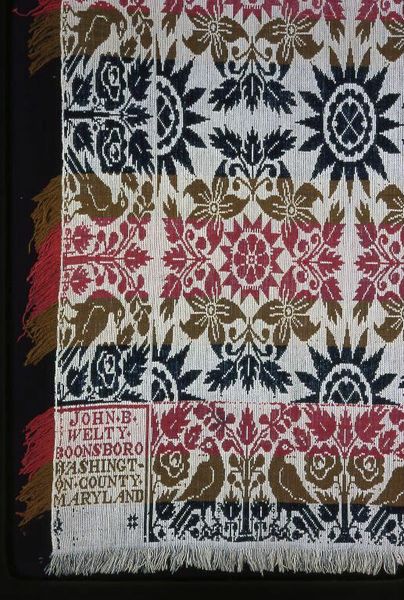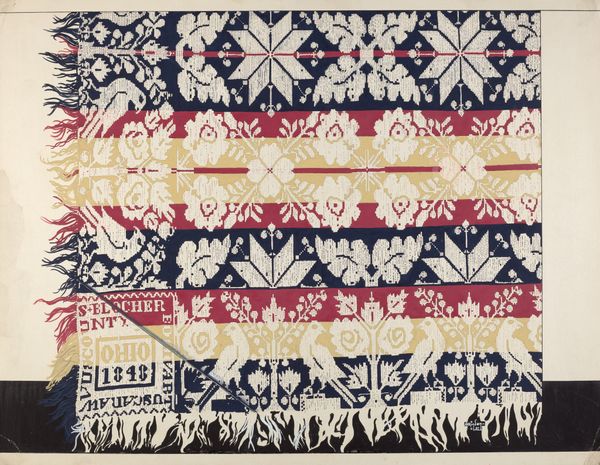
weaving, textile
#
weaving
#
textile
#
folk-art
Dimensions: 185.4 × 167.8 cm (73 × 66 in.) 34.3 × 36.2 cm (13 1/2 × 14 1/4 in.)
Copyright: Public Domain
This coverlet was made in 1848 by S. Blocher in Tuscarawas County, Ohio. It's a fascinating example of weaving, a textile art form that combines technical skill with artistic expression. The coverlet's design, woven with dyed wool, features geometric patterns and stylized motifs. The process involved interlacing two sets of threads: the warp, held under tension on a loom, and the weft, which is drawn through the warp to create the fabric. The weaver, presumably Blocher, would have meticulously planned and executed the design, using a loom that may have been hand-operated. The coverlet is a testament to the labor and skill involved in creating textiles before industrialization. The coverlet challenges traditional distinctions between art and craft, demonstrating how everyday objects can be imbued with artistic merit through careful design and skilled execution. It is also a reflection of early American industry, representing labor, local economy, and society.
Comments
No comments
Be the first to comment and join the conversation on the ultimate creative platform.
